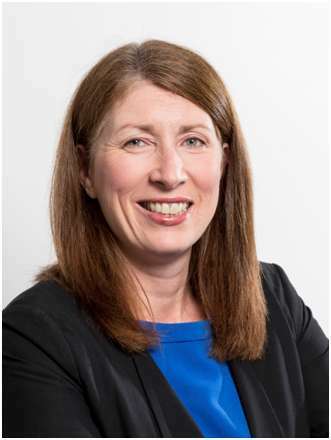
Persistence or resilience is often said to be the most important quality you need when you start a business. Throughout my career I’ve often faced my own self-doubts and particularly as I set out to establish and grow my traveltech business, Criton. It’s an award-winning guest engagement platform helping hotels and serviced apartment operators. It allows accommodation providers to offer mobile check-in, digital door keys, in-room messaging and ordering, location-based push notifications and more. I recently sold Criton to a global hospitality group. It’s been quite a journey.
Thinking you don’t deserve your success, and dismissing your achievements as pure luck, can be exhausting. Better known as Imposter Syndrome, it’s an issue that is never far from the headlines. Recently the Olympic gymnast Suni Lee spoke of feeling that she didn’t deserve her gold medal in Tokyo last summer. She says it was bad enough that she suffered panic attacks and stopped wanting to do gymnastics.
Over the years, all sorts of leading names from the worlds of business, politics and entertainment have spoken of it, from Scottish first minister Nicola Sturgeon and former Starbucks CEO Howard Schultz to actresses such as Natalie Portman and Helen Mirren. The condition is best described as an inability to accept one’s accomplishments despite evidence of competence. It was first identified in 1978 by the psychologists Pauline Rose Clance and Suzanne Imes, who initially thought it was unique to women, but as we now know, it is a widely felt phenomenon. Somehow you need to work to manage the ongoing narrative in your head or it can cripple you.
Why networking works
When you are starting a new business it is inevitable that you will worry about failure. So when I finally took the step of starting my own business, some of it was new to me and I considered how I could benchmark what was going on. To do that I networked with other founders, some at the same and others at different stages to me. We shared our issues and of course I learned that much of what I faced was normal, occasionally inevitable and most importantly I realised I wasn’t alone. Starting a business can be a lonely time and this solidarity was often a real lifeline for me.
Networking is something I have always done. I see it as an important part of any career and it is paramount when setting up a business. I have always viewed networking as a place I go to learn and to help others, rather than where I can gain something. A good network is imperative but it takes time. It’s not something you can build overnight and it needs to be maintained.
As a woman in business, there can be downsides and often when you are at networking events such as conferences, even if the attendance is gender balanced, the panels and speakers are often predominantly male. This is one of the reasons I am proud to be involved in Women in Tourism which was founded to encourage and promote diversity, part of which is seeing people like you on stage.
File good moments for a rainy day
Another thing I’ve always done to help build my resilience is to have a folder of positive emails from customers, colleagues and bosses that you can open when you are having a bad day and remind yourself that one bad day does not make you bad. I call it my “glory file”. Don’t let those good moments get swept away.
The biggest challenge I encountered in setting up my business was that I was very nervous about being a non-tech founder. In the early days it definitely held me back. I was intimidated by not understanding what developers actually did. I overcame that by employing great staff who would take the time to explain to me the issues they faced and of course speaking to other founders. I was also very fortunate to have our office in Codebase, a world renowned tech incubator in Edinburgh, where I had access to other founders. Many were technical and happy to give some time to a non-tech newbie, to allow me to learn and sense-check.
Also, the sector I work in is hospitality, which has a very fragmented combination of technologies. In developing Criton, we needed to integrate. It meant a lot of up front investment where we couldn’t charge customers, which meant extensive cash out and that had an obvious impact on our cash flow.
Balancing risk and passion
Entrepreneurship is often about taking risks. I sold my house in Edinburgh to release the capital to start Criton and I gave up a well paid job and bonuses to do it. But it felt like the right thing to do and I really have never looked back or regretted it. The biggest risk I took was taking investment and bringing someone into the business with no hospitality or technology experience which at times caused friction and unnecessary distractions.
When Covid hit I thought we might not survive but it actually drove demand for our product. I always had faith – and proof from users – that there was demand for our product and that kept me going.
My final thought is about passion, often cited as important in entrepreneurship. For me it’s an absolute privilege to be able to endeavour to solve the problems faced by hoteliers. Even after six years my passion for the issues they face is undimmed and still, each day, I am excited as we continue to build Criton into a problem-solving product. And to be part of the flourishing traveltech scene in Scotland makes me incredibly proud.
About Author:
Julie Grieve is an Edinburgh-based entrepreneur and founder of award-winning guest engagement platform Criton, which was recently acquired by Portuguese hospitality tech pioneer Nonius.


